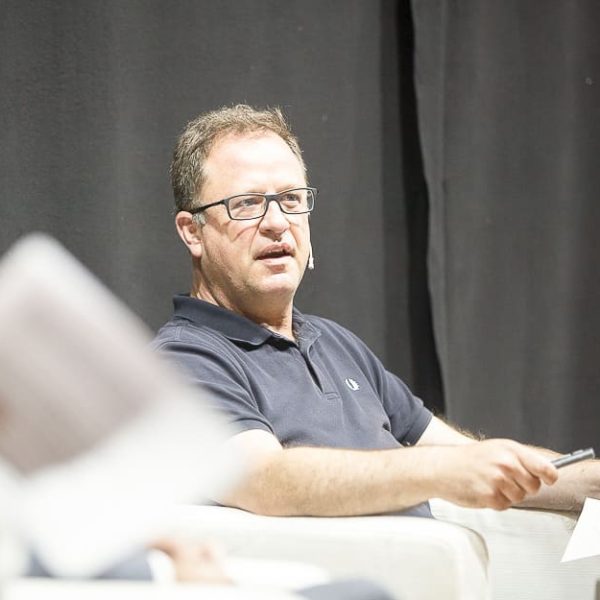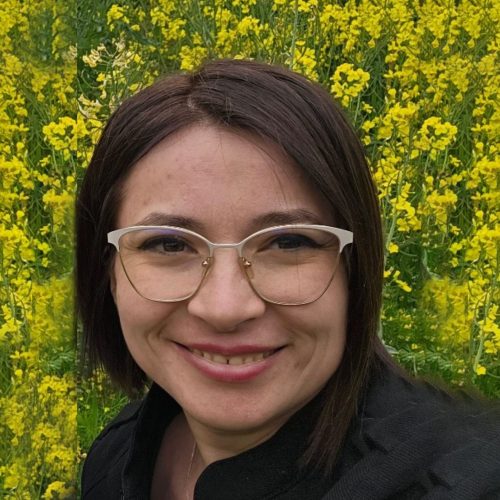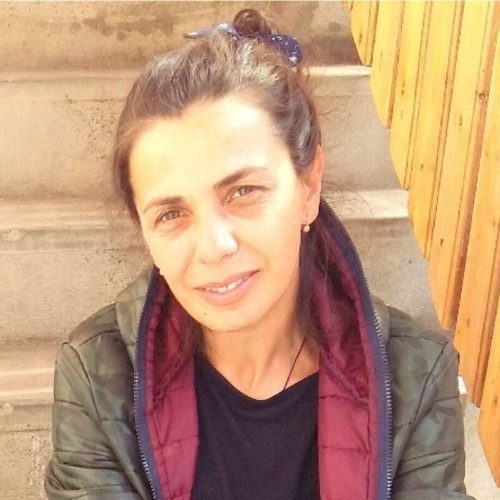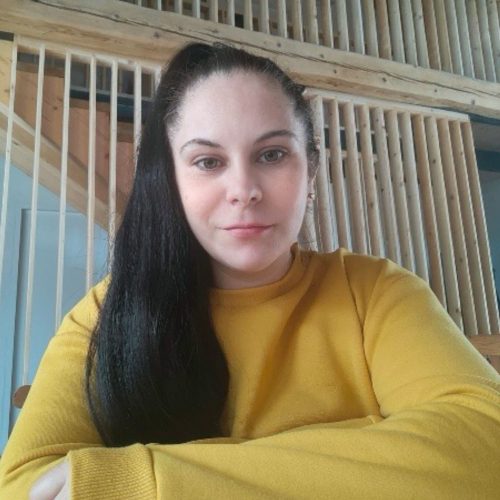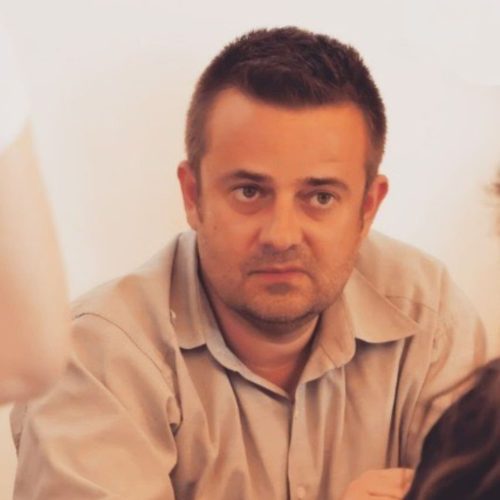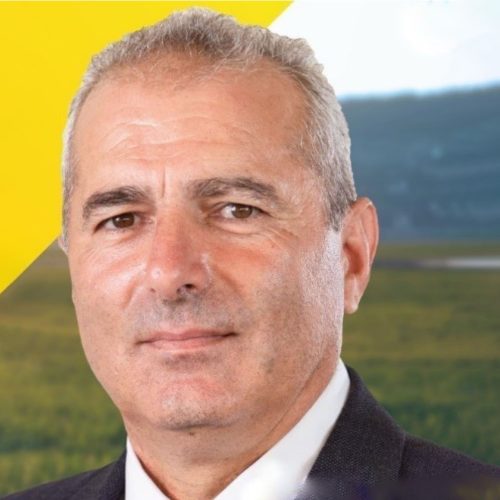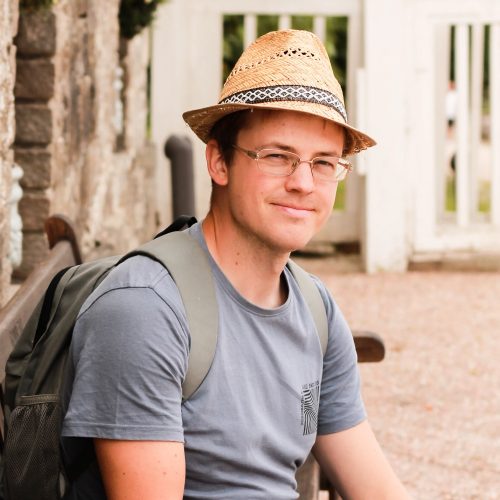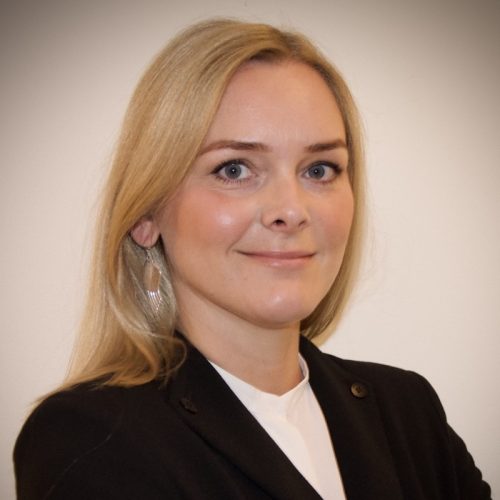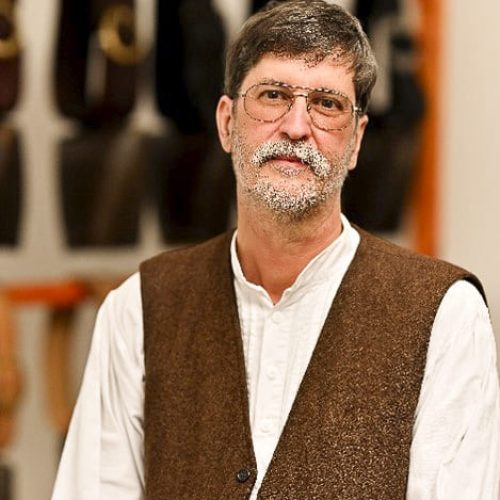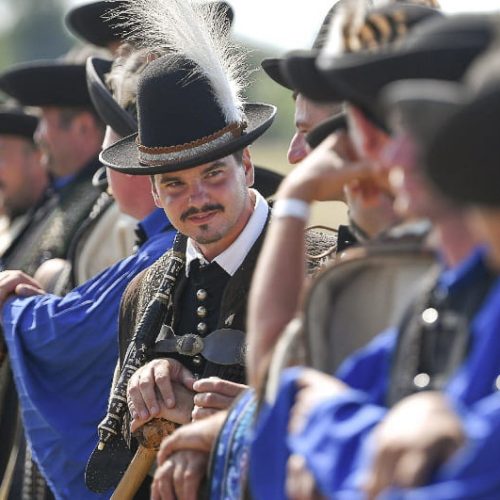Societal partners
In Amsterdam’s west lies the Lutkemeerpolder – 43 hectares packed with ecological potential!
Currently slated for a business park, it holds a greater, underestimated ecological value for the city and beyond. We would like to transform the Lutkemeerpolder into a dynamic agro-ecological landscape park: A thriving hub, a cornerstone in urban food policy, and a global model for the food transition.
Our ambitious project calls for collaboration with the neighbourhood. Therefore, we will place inclusiveness, diversity, and connection at the forefront. We want to shape the future with agroecological urbanism and landscape parks like Voedselpark Lutkemeer. This is the last piece of land in the city suitable for agriculture due to its fertile soil. Voedselpark is inspired by IPES FOOD’s transformative vision. It will position Amsterdam at the forefront of sustainable agriculture. Let’s seize this chance now!

Mértola faces depopulation and desertification. How do we tackle this challenge? Our organisation, the Terra Sintrópica Association (TSA), is part of a local collective. Together, we’ve tested solutions in a unique co-governance process. It prioritises ecological regeneration and social justice.
As active members of the Mértola Food Network, we initiate projects aimed at revitalising the soil. This promotes agroecology as the primary method of food production, contributing to the locally-based food system in the village.
The Centre for Social Studies (CES) is the BIOTraCes scientific partner in Portugal. The CES supports us and the Mértola Future Lab – we are both societal partners within BIOTraCes. And apart from sharing knowledge, we also grow and serve delicious food. Bom apetite!
Our Environmental Studies Centre (CEA) is a dedicated institution for sustainable living in Vitoria-Gasteiz. We are strongly connected to the Alava Plains bioregion. For BIOTraCes, the role of CEA will be to act as a hub of news, events, and newsletters. This provides a nuanced glimpse into commitment to sustainable practices.
Moreover, we are actively shaping the future of Vitoria-Gasteiz.
How we do this? By meticulously collecting and analysing information to inform robust urban policies. Our focus revolves around treating the municipality and bioregion as an interconnected ecological system. Thus, we will unlock untapped potential for more effective local and regional planning. In this way, we will create a blueprint for sustainable living within Vitoria-Gasteiz and beyond.
Our CEA researchers are dedicated to spreading awareness, fostering education, and encouraging citizen participation. The overall goal is to engage all facets of society, from corporate giants to community members: Building a sustainable future requires a collective effort!
A Theory of Transformative Change will synthesise the project´s findings. It will outline the crucial steps towards biodiversity recovery . And it will create public and private strategies for initiating, accelerating and (up)scaling transformative changes.
Our Romanian “Dealurile Târnavelor” Local Action Group (LAG) was established in 2007 under the LEADER program. We aim at promoting socio-economic and cultural development in the Mures and Sibiu county. Our 47 members collaborate with both public and private entities. Eventually, this will result in a local development strategy to achieve our objectives: Boosting tourism, preserving historical sites, promoting ethnic minorities. Our initiatives support sustainable farming, agri-tourism, and the value-added agricultural products. Those mouth-watering delicacies include rhubarb jam, elderberry syrup, and the savory raw-milk cheese from the Saschiz region – very tasty!
In BIOTraCes, we are committed to intensifying our efforts even further. As an adaptive and dynamic entity, our partnership evolves in response to changing local needs and priorities. Currently, the LAG consists of 35 members: 8 partners from the public sector, 14 representatives from the private sector, 12 Non-Governmental Organisations (NGOs) and one person relevant for the territory. Explore our efforts in fostering community development. We strive to achieve a harmonious balance between tradition and progress. A journey towards sustainable and culturally rich landscapes!
Small and medium-sized forest owners
Let´s dive into the topic of forest management amidst climate change and biodiversity loss! Small and medium-sized forest owners are often left out of discussions about combatting rising temperatures and species decline. Yet, they potentially hold key insights. These can be used to create new and inventive approaches that boost habitat diversity, species richness, and overall sustainability.
They can also provide clues to fair, locally accepted and holistic forest management. BIOTraCes is teaming up with Katarina Haugen and Oscar Jacobsson from the University of Gothenburg (UGOT).
For Katarina, the interview-based case study with individual forest owners adds new dimensions to her previous research: Forest ownership and forest land use in Sweden based on register and survey data. Oscar Jacobsson has previously studied historical farming transformations in Swedish river valleys.
This BIOTraCes case study provides an opportunity to engage with a pressing contemporary issue regarding Swedish forests. It will also deepen the understanding of the different conditions affecting this type of land use today. Welcome to the future of sustainable forestry!
Traditional herders in Hungary
Traditional herders are disappearing, relegated to the realms of folklore. Yet, there is a pressing need for European herders versed in both traditional grazing management and biodiversity conservation. Joining forces with conservationists, rangers, and ecologists, they can craft innovative grazing systems rooted in tradition. These benefit animals and local biodiversity.
Within BIOTraCes, two advocates champion the cause of herders: The Hungarian ethnoecologist Zsolt Molnár, and Bálint Sándor, a nature protection engineer and herder’s apprentice. Both work for the Centre for Ecological Research. Their initiatives involve fostering herder networks, drawing inspiration from successful models in Spain. Additionally, they strive to elevate the role of women in herding. Zsolt and Bálint are also working towards establishing a practical ‘herding school’ in Hungary. Tradition at its best!
The “Presidium” is our overarching organisation. It unites passionate, dedicated activists and local associations. We focus on environmental, sustainable development, heritage, and cultural initiatives.
At the heart of our mission is the management of the Simeto River Agreement. This alliance brings together grassroots civil society, municipalities, and research institutions. We are also deeply committed to fostering participatory democracy in territorial planning. The journey of the Presidium began in 2002 with collective activism against waste facilities. Over time, our movement gave rise to the structured Simeto River Agreement. It is a visionary framework of political, social, and economic development, emphasising on the restoration of the river. Central to our ethos is the activation of participatory democracy. We empower citizens to engage in territorial planning while safeguarding the Simeto River. As a societal partner of BIOTraCes, this will further enhance our initiatives to an even greater extent.
On the Dutch Wageningen Mountain lies the beautiful natural area of Dorschkamp. Despite its significant natural value, the municipality has designated this unique spot for housing development.
However, our community, De Beuk, is determined to transform it into an ecological and inclusive living space. We believe this is the key to preserving the area’s beauty, both during and after construction. Comprising individuals who cherish nature, we envision a neighbourhood blending living, working, and mutual care. Wageningen is a hub for sustainability innovation and provides the ideal backdrop for nurturing communities with global appeal.
This is also the reason why we are involved in the BIOTraCes project – to receive support from the social scientists at Wageningen Environmental Research. Our De Beuk community consists of five distinctive groups, each with a slightly different approach. But we are united by a shared goal: To live in harmony with nature – and each other.

